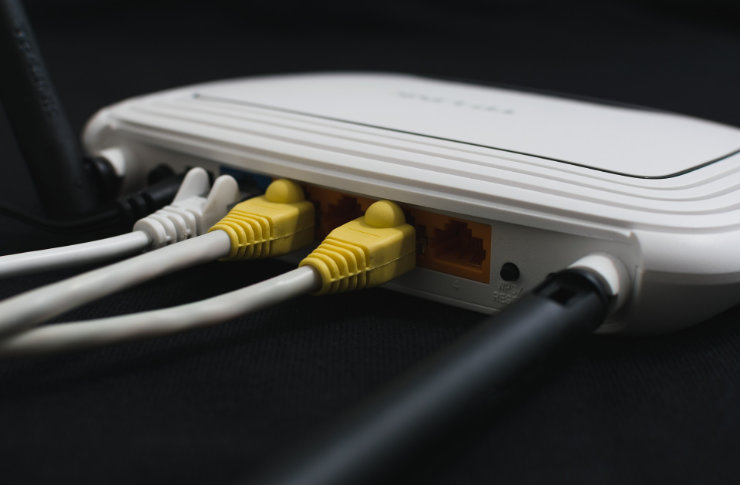Navigating Internet Options for Seniors: A Comprehensive Guide
As technology continues to play an increasingly important role in our daily lives, seniors are discovering the benefits of staying connected through the internet. From keeping in touch with family to accessing essential services, having a reliable internet connection is crucial for older adults. This guide will explore various aspects of internet services tailored to seniors' needs, focusing on accessibility, affordability, and user-friendly options.

For seniors living in areas where broadband isn’t available, satellite internet can be a viable alternative. While it may not be as fast as broadband, it can provide internet access in remote locations. Another option is DSL (Digital Subscriber Line), which uses existing phone lines to deliver internet service. This can be a familiar and comfortable choice for seniors who are used to having a landline phone.
How can seniors choose the right internet speed for their needs?
Selecting the appropriate internet speed is crucial for ensuring a satisfactory online experience. For seniors who primarily use the internet for basic tasks like email, web browsing, and occasional video calls, a speed of 25 Mbps (megabits per second) is usually sufficient. However, if multiple devices will be connected simultaneously or if high-quality video streaming is desired, a faster speed of 50-100 Mbps might be more appropriate.
It’s important to note that internet speeds can vary depending on the time of day and the number of users on the network. Seniors should consider their typical usage patterns and consult with internet service providers to find a plan that meets their specific needs without overpaying for unnecessary speed.
What features should seniors look for in Wi-Fi routers?
Wi-Fi technology is an essential component of modern internet setups, allowing for wireless connectivity throughout the home. When selecting a Wi-Fi router, seniors should prioritize ease of use and reliability. Look for routers with simple setup processes and user-friendly interfaces. Some features to consider include:
-
Dual-band capability: This allows devices to connect on either the 2.4GHz or 5GHz frequency, providing flexibility and reducing interference.
-
Guest network option: This feature creates a separate network for visitors, maintaining the security of the primary network.
-
Parental controls: While typically used for children, these controls can also help seniors manage their internet usage and protect against potentially harmful content.
-
Automatic updates: Routers that update their firmware automatically help ensure ongoing security and performance improvements without requiring manual intervention.
Are there special internet plans or discounts available for seniors?
Many internet service providers offer special plans or discounts designed specifically for seniors. These plans often feature simplified billing, dedicated customer support, and sometimes even training on how to use the internet effectively. Some providers also participate in government assistance programs that can help low-income seniors afford internet access.
It’s worth contacting local internet providers to inquire about senior-specific offerings. Additionally, organizations like AARP often partner with internet companies to provide member discounts on internet services.
How can seniors ensure their online safety while using the internet?
Online safety is a crucial concern for all internet users, but it can be particularly important for seniors who may be less familiar with potential online threats. Here are some tips to help seniors stay safe online:
-
Use strong, unique passwords for each online account and consider using a password manager to keep track of them securely.
-
Be cautious about sharing personal information online, especially on social media platforms.
-
Learn to recognize and avoid phishing scams, which often come in the form of deceptive emails or websites.
-
Keep software and operating systems up to date to protect against known vulnerabilities.
-
Use reputable antivirus software and keep it updated.
-
Be wary of unsolicited phone calls or emails claiming to be from tech support or financial institutions.
What are some user-friendly devices for seniors to access the internet?
While traditional computers and smartphones can be used to access the internet, there are also devices designed with seniors in mind. These often feature larger screens, simplified interfaces, and enhanced accessibility options. Some popular options include:
-
Tablets with senior-friendly interfaces: These devices often have larger icons, simplified menus, and built-in accessibility features.
-
Smart displays: These stationary devices combine a touchscreen with voice control, making them easy to use for video calls and accessing information.
-
E-readers with internet capabilities: These devices offer a comfortable reading experience with the added benefit of basic internet access.
-
Senior-oriented smartphones: Some manufacturers produce phones with simplified interfaces, larger buttons, and enhanced audio features.
| Provider | Services Offered | Key Features/Benefits |
|---|---|---|
| Xfinity | Cable internet, Wi-Fi | Nationwide coverage, variety of speeds |
| AT&T | Fiber, DSL, Fixed Wireless | Reliable service, senior discounts available |
| Verizon | Fiber, DSL | Fast speeds, bundled services |
| CenturyLink | Fiber, DSL | No contracts required, price for life guarantee |
| Spectrum | Cable internet | No data caps, free modem |
Prices, rates, or cost estimates mentioned in this article are based on the latest available information but may change over time. Independent research is advised before making financial decisions.
As technology continues to evolve, internet access becomes increasingly important for seniors to stay connected, informed, and engaged. By understanding the various options available and considering factors like connection type, speed, and safety, seniors can choose an internet solution that best fits their needs and lifestyle. With the right setup and knowledge, the internet can be a powerful tool for enhancing quality of life and maintaining independence in the golden years.




